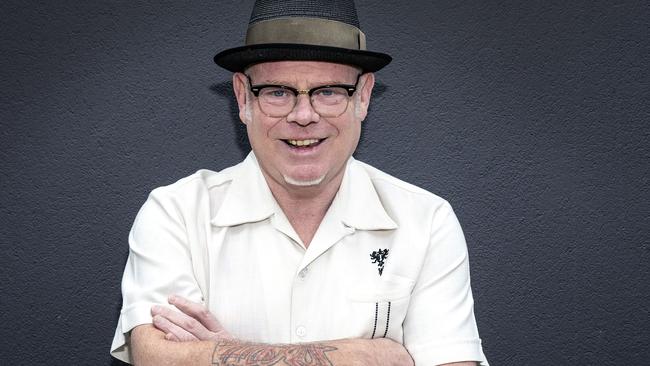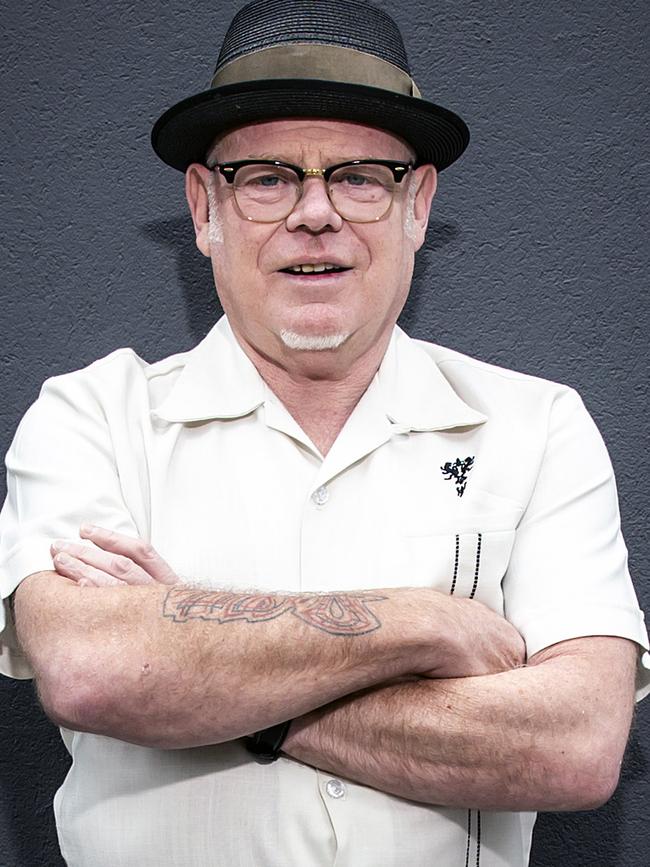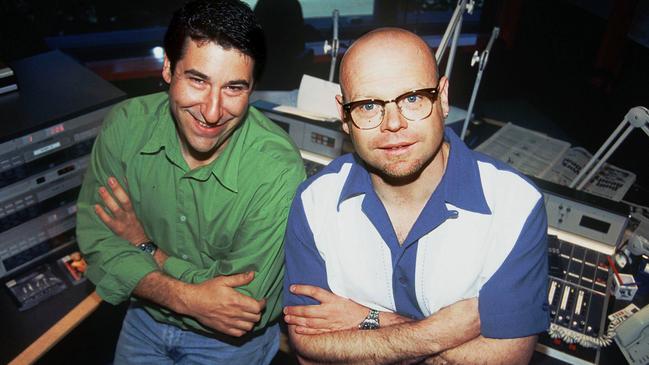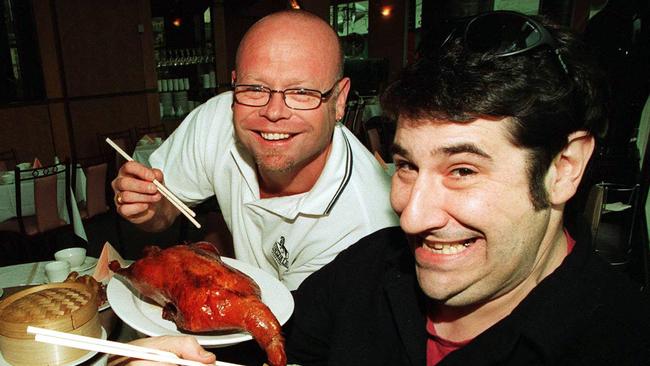Steve ‘Bedders’ Bedwell pens book on his troubling bipolar disorder
Steve Bedwell’s clever wit infused multiple TV shows where he worked as a writer or producer but his latest story might be the most important of his life.

Confidential
Don't miss out on the headlines from Confidential. Followed categories will be added to My News.
Steve Bedwell used to make the whole town laugh.
His clever wit infused TV shows including Tonight Live With Steve Vizard, The Footy Show, Russell Gilbert Live, and The Eric Bana Show, where he worked as a writer or producer.
Bedwell also co-hosted Triple M’s Timbo (Tim Smith) and Bedders, a breakfast show that dominated ratings from 1998 to 2001.
But Bedwell’s latest communique might be the most important of his life.

He has written a book, My Dad Is Going To Hospital, intended as a loving explanation to his daughters, aged 6 and 11, about living with mental illness, and the nine times he has been admitted to psychiatric hospitals afterhe was found to have bipolar disorder 13 years ago.
The book is written from the perspective of an 11-year-old named Andy.
The book’s story mirrors Bedwell’s own experiences, opening with a chapter on mania and depression where Andy’s father randomly mows the neighbour’s lawn and buys a car his family doesn’t need.
In real life, mania turned Bedwell into a compulsive buyer. “I bought the first-ever $100,000 Holden in 1997,” he said. “Within three months, I’d traded it in on a BMW M3; within another three months, I’d traded it in on another M3.
“Tim and I were going great guns. I’m buying $10,000 watches every two weeks, I had plenty of money, I was living the life of Riley. In this town, when you’re doing well, the crowd is always happy to help you along.
“There’s a well known (American) painter called Shag,” Bedwell adds. “There was a newspaper article that said the three biggest collectors in the world of his art were Whoopi Goldberg, Ben Stiller, and me.
“When I was manic, I expected everyone around me to work as hard as I did, to do what I did, to keep up; work, work, work. It was the best of times, it was the worst of times.”
Bedwell’s book gets emotional when it examines Andy’s struggle to understand behaviours associated with bipolar, and a sense of fear and helplessness.

It also follows Andy into a doctor’s office where bipolar and its treatment are explained.
In 2007, Bedwell was on holiday in Europe with his wife when he told her: “None of this is making me happy”.
When they got back to Australia, she booked him into see a psychiatrist. The psychiatrist told Bedwell: “The good news is, I can help you, the bad news is, you’re not going home today.”
Bedwell’s first stay at a psychiatric facility lasted 12 weeks. Other stays have been six to eight weeks.
“I take lithium tablets as a mood stabiliser,” he said. “I’ve had ECT — electric convulsive therapy. They used to call it shock treatment, but they changed the name because ‘shock’ doesn’t sound good.”

The book also aims to destigmatise psychiatric hospitals, and what goes on there. To the character, Andy, it’s a sanctuary where doctors help his father get back on track.
Bedwell said his re-admissions to hospital for treatment have taken a big toll on his kids.
“All they need is a six- month run without me being in hospital. Because I’m in all the time, it puts immense pressure on their mother,” he said.
The two are separated.
“The pressure is on her, and it;s an unjust pressure,” he says. “That’s the thing I hate most about this illness. It’s taken my family away from me.”
Bedwell has ambitions to return to stand-up comedy, but his priority is the book, which is in the hands of several interested publishers.
“It’s been interesting to consider the world through the eyes of an 11-year-old (character in Bedwell’s book), especially telling a story about mental illness. It means there’s hope and humour in the story. Bipolar is not curable, but it’s controllable.”
